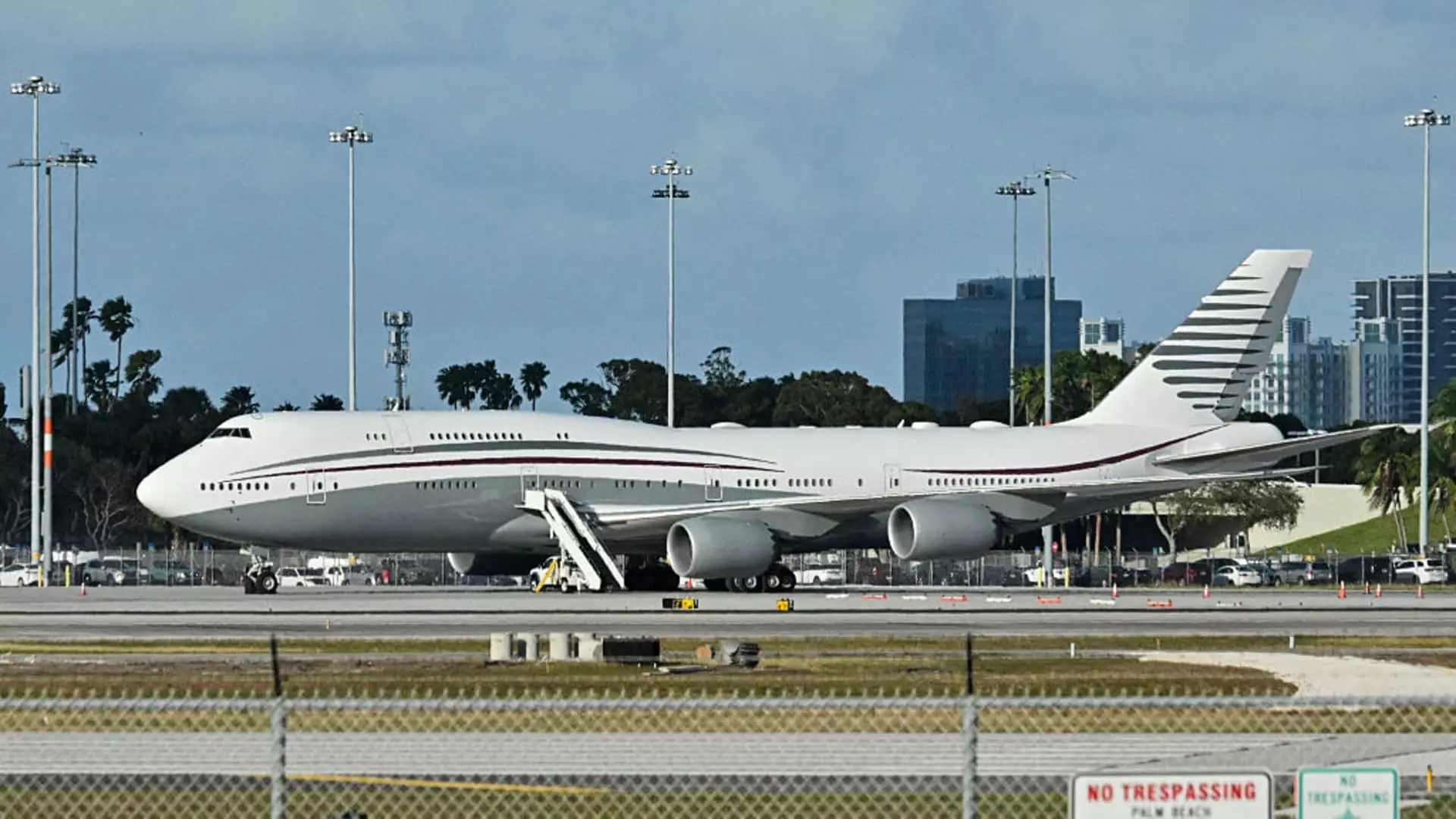In a world where diplomacy often walks a fine line between strategic alliances and egregious ethical breaches, the acceptance of a Boeing 747 from Qatar stands as a glaring misstep for the Trump administration. While diminishing checks and balances may have become commonplace in American politics, this particular gift casts a shadow over the integrity of the presidency itself. Defense Secretary Pete Hegseth’s formal acceptance of the luxurious aircraft was touted as compliant with federal regulations; however, such claims do little to assuage the concerns of critics who see this deal as a thinly veiled example of political bribery.
Rejecting the assertion that this is merely a cute addition to the presidential fleet, Senator Chuck Schumer emphasized the broader implications of what accepting such a ‘gift’ could mean for America’s foreign relations. He called it “a stain on the office of the presidency” that requires clear accountability. These sentiments echo among many who fear that the acceptance of a lavish jet, particularly one valued at roughly $400 million, sets a dangerous precedent for future foreign interactions.
The Illusion of Luxury: A Costly Conundrum
President Trump lauded the acquisition, even labeling it “a great thing,” but the pros and cons of this acquisition reveal a far murkier picture. While boasting about ‘free jets’ may play to Trump’s unapologetic populism, reality tells a different story. Experts warn that converting the Qatar jet into a secure and functional Air Force One could potentially cost taxpayers upwards of $1 billion. It raises fundamental questions about the efficacy of such a transaction—can a 13-year-old jet truly serve the mission-critical needs of the President?
Moreover, the ongoing development delays surrounding Boeing’s own Air Force One program further complicate the narrative. Hegseth’s promises that the Department of Defense would ensure “proper security measures” ring hollow amidst the shouting match with South African President Cyril Ramaphosa, where the focus shifted away from legitimate concerns to Trump’s controversial claims about alleged “genocide.” This indicates that Trump’s priorities lie not in the thorough vetting of international gifts but instead in the spectacle of politics.
National Security at Stake
Senator Susan Collins, a moderate Republican, raised critical eyebrows over the political and national security implications of accepting such a generous ‘gift’ from a foreign nation. To many, this transaction is imbued with risks that transcend mere optics; it opens the door to ethical and constitutional dilemmas that should never be ignored. The potential for espionage is no trivial matter when one considers the sensitive nature of the aerospace industry and national defense.
Additionally, it is crucial to analyze the motivations behind Qatar’s generous offer. Critics assert that such gifts can cross the line into manipulation; this marks a concerning fusion between political generosity and ulterior motives that could sway American policy. By accepting this jet, Trump not only invites scrutiny but also inadvertently signals that the country may be open for business in a way that many Americans would find unbecoming of their leaders.
The Political Fallout: Divided Voices
The fallout from this acquisition is palpable, with voices from both sides of the aisle echoing concerns about integrity and accountability. While opponents of the administration view this as just another example of Trump’s disregard for ethical norms, some Republicans are equally alarmed. This unusual alliance arises from a shared understanding that this kind of international give-and-take must adhere to standards greater than mere expediency or convenience.
As Schumer’s proposed legislation seeks to disallow foreign aircraft from being designated as Air Force One, the discourse surrounding this debacle becomes a microcosm of America’s broader struggles with governance, principle, and leadership. When the people in power prioritize personal gain over public accountability, democracy itself feels vulnerable.
In rejecting faux populism and demanding transparency, it is imperative that citizens harbor feelings of skepticism toward political maneuvers that threaten the integrity of the institutions within which they operate. The critical lens must remain sharp as we navigate a future fraught with political gifts that may carry a price tag far beyond their face value.


Leave a Reply